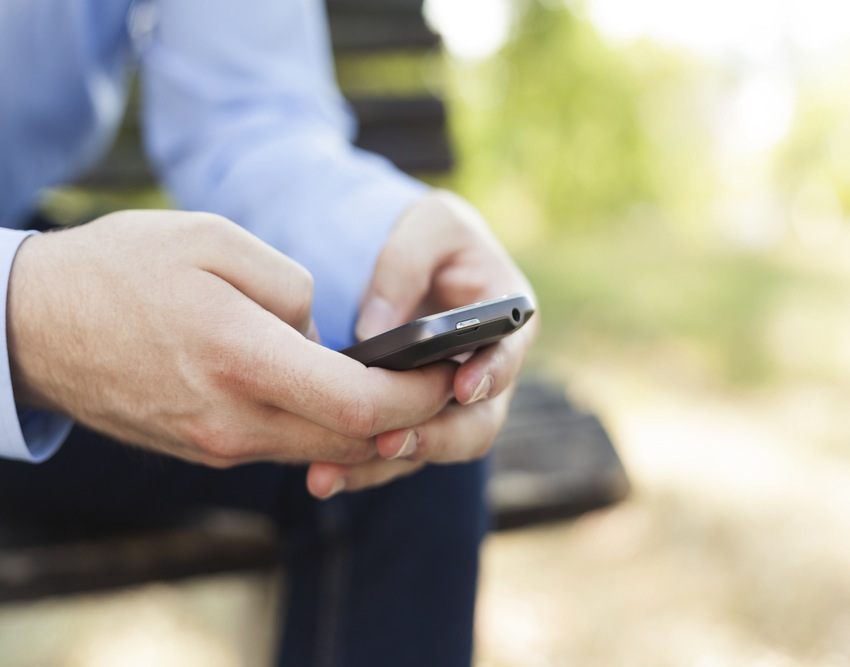Privacy Expert: Verizon Scandal Impacts Almost Everyone

Smartphone photo via Shutterstock
The Verizon Wireless slogan “Can you hear me now?” has taken on new meaning in light of reports that the National Security Agency has been asking the company to fork over information about customer phone calls.
On Wednesday night, The Guardian unearthed confidential court files showing that the wireless carrier provided the NSA with documentation of phone calls placed between millions of customers in the United States. The US Foreign Intelligence Surveillance Court issued the order, which was meant to remain classified, and grants the NSA access to electronic copies of all call detail records made by Verizon customers in both the US and abroad “on an ongoing daily basis.”
“If you take a step back for a minute, this is a huge, huge … issue, and it doesn’t just involve Verizon,” said Sarah Downey, a lawyer and privacy analyst for Abine. “If you are on Verizon, and calling anyone else in the US, your calls are being monitored. It really affects anyone, regardless if they are [committing] a wrongdoing.”
The order was procured under the Patriot Act’s Section 215, according to the American Civil Liberties Union, and authorizes the government to seek secret court orders for the production of “any tangible thing” relevant to a foreign-intelligence or terrorism investigation, the ACLU said.
The four-page document, available on the Guardian’s website, has raised serious concerns about how businesses are being forced into cooperating with government agencies—and essentially violating the rights of customer privacy—for the sake of national security investigations. Verizon responded to the Guardian’s report by saying they take steps to ensure customer privacy, however, they are required to comply to federal court orders. They would not comment specifically on the accuracy of the report, however.
This particular order has “alarmed” privacy advocacy groups because the request doesn’t just target suspected terrorists, it goes after anyone who has Verizon’s service. While the court’s decision does not allow the NSA to listen to conversations between two parties, it does let them monitor whom they talked to, from where, and for how long. And that amount of personal information being put into the hands of the federal government has some privacy experts on edge.
Downey called the the NSA’s monitoring “blanket surveillance,” adding that other wireless carriers are likely doing the same thing—people just don’t know it yet. “You can’t just go out and spy on everybody just because you can. We have protections against that, and it’s what this country is based on. Just because you can collect this info doesn’t mean you should,” she said. “Even if you are not doing anything, it’s sort of like, this isn’t supposed to happen in this county.”
Some people have been passé about the news, joking on social sites like Twitter that all the government will find are conversations between customers and their family—boring ones at that. But Downey said this is a small piece of information that’s part of a bigger puzzle that the government can build to identify citizens. “The thing about big data and privacy—and what I say time and time again—you think these small pieces of data don’t mean anything in a vacuum sense, but when you add them up, it paints an extremely big picture about who you are,” said Downey. “They get your phone number, location, call location, unique identifiers, phone calling card numbers, time duration—the only thing not covered is what you are saying, but if they identify something they deem ‘sketchy,’ then they can actually go and seek a warrant for the contents of the conversation.”
She said the only thing that can offset this situation is public outrage and a call to end the practices, something that members of the American Civil Liberties Union intend to do.
In a statement issued on Thursday, following news about the files and court order, ACLU members said now that this “unconstitutional surveillance effort” has been revealed, the government should end it and disclose its full scope, and Congress should initiate a full investigation. “Since 9/11, the government has increasingly classified and concealed not just facts, but the law itself. Such extreme secrecy is inconsistent with our democratic values of open government and accountability,” said Michelle Richardson, legislative counsel with the ACLU Washington Legislative Office.
But according to reports, a sweeping investigation may not happen. Members of Congress have said the court order and subsequent surveillance was “lawful,” and in some cases, the AP reports, helped thwart criminal activity.
Despite any benefits government agencies may have leveraged from this surveillance, Downey said she hopes people continue to pay attention to this and other privacy violations that may be carried out by federal officials. “Now that this has happened, I hope it drives people to really pay attention and talk to Congress. People need to push for actual change,” she said. “We have seen privacy laws are out of date, and this is a prime example of why they need to be overhauled right now. I hope people get angry about it.”

